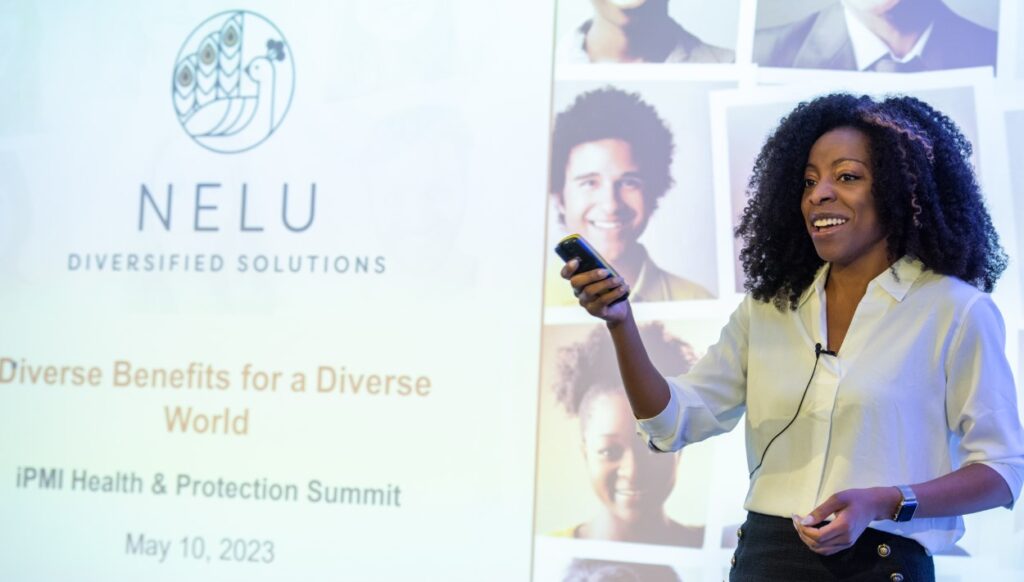Employers are starting to realise they can create benefit programmes that tackle systemic issues creating structural barriers to healthcare.
At the Health & Protection IPMI Summit, Uche Enemchukwu, CEO of Nelu Solutions, told delegates about the impact of the creation of these standards on benefits design – citing an example of a company focusing on maternal health.
“One of our clients that has more than 10,000 employees,” Enemchukwu (pictured) said.
“Maternal health is something they have decided they are going to focus on.
“So they’re focusing specifically on maternal mortality for black women – not only Black women in the US but Black women here as well because the data is very clear. The data is very similar in the US, in the UK, in Germany.
“There are various socio-economic reasons that this is the case. Particularly in the US, it is a related fact.”
According to Enemchukwu, research in the US has drawn a link between the level of education Black women have and the likelihood to experience maternal complications.
“What that tells you is it has very little to do with do you not know?” he said.
“Do you not understand that you’re supposed to take folic acid? Are you not going to your doctor’s appointment. It’s not a health literacy issue. It’s not a not taking care of yourself issue here. It’s a systemic issue.”
And Enemchukwu highlighted that issues such as these were causing employers to pause and take significant steps to protect the heatlh of their employees.
“The reality is employers are understanding hey, we can create programmes for our employees,” she continued.
“We can create programmes to address, or at least mitigate some of these systemic issues, there are so many different pieces, whether it’s structural racism, whether it’s structural lack of access.
“There are so many levels of structural barriers at play so employers are thinking about what they can do to mitigate some of that?
“What programmes can we create? What kind of direct contracting can we do with preferred hospital systems to make sure that they’re following our procedures?
“I want to really hit home, that employers particularly your multinational employers, are really thinking ‘How do we as a company take our diversity and inclusion and equity goals and create standards that we can create, translate and apply to all of our employee populations around the globe.”
